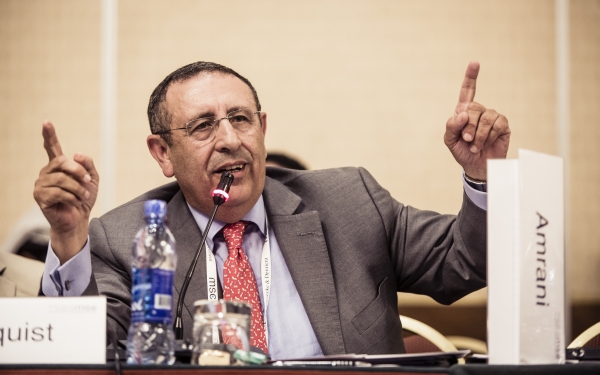
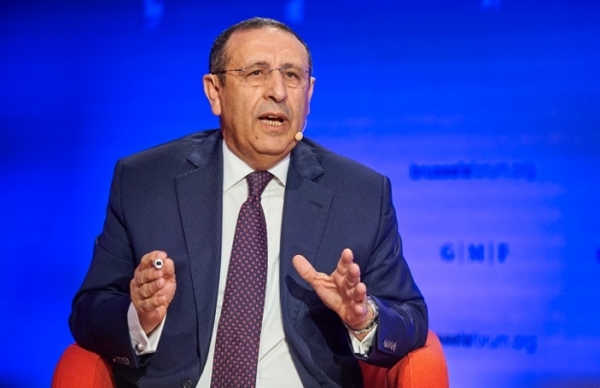
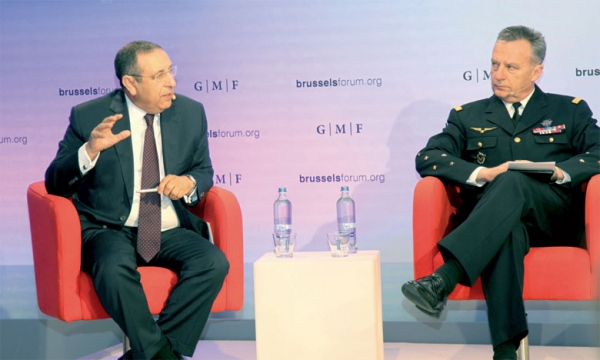
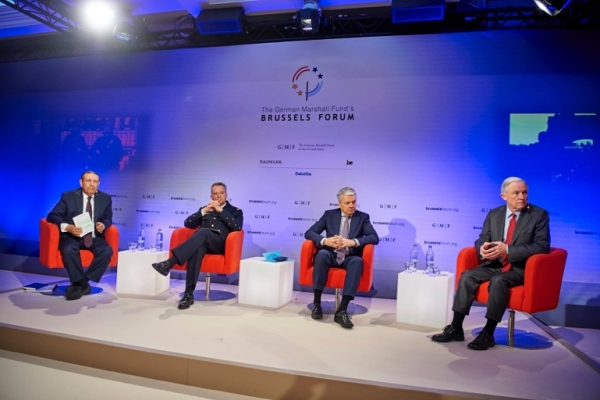
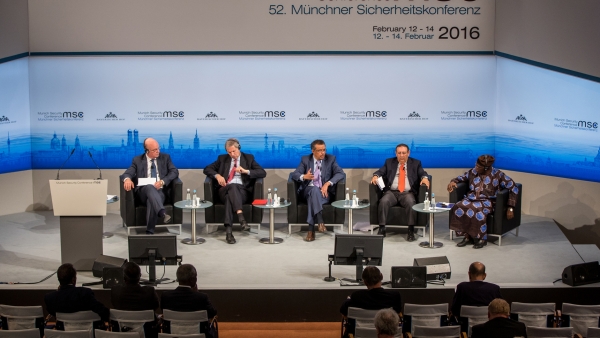
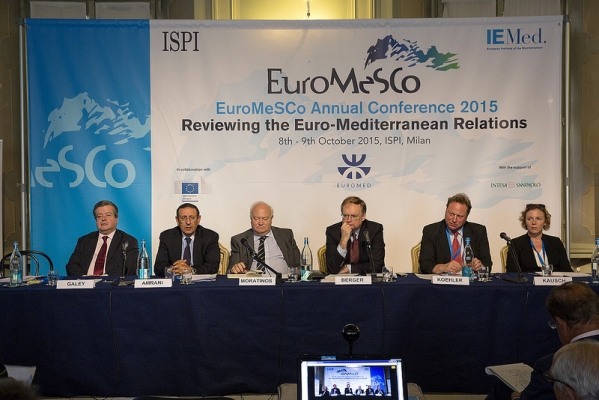
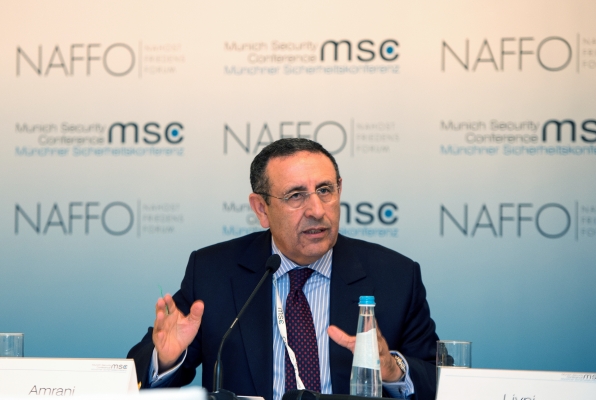
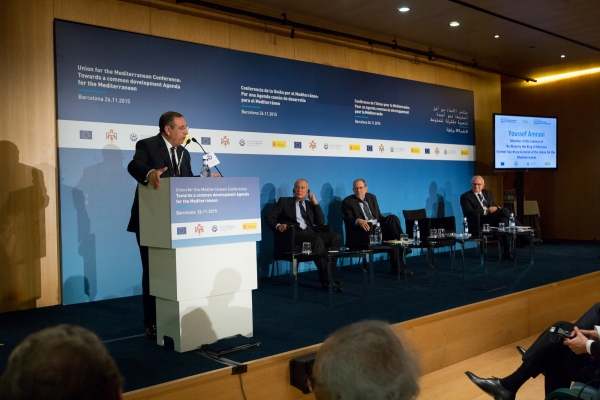
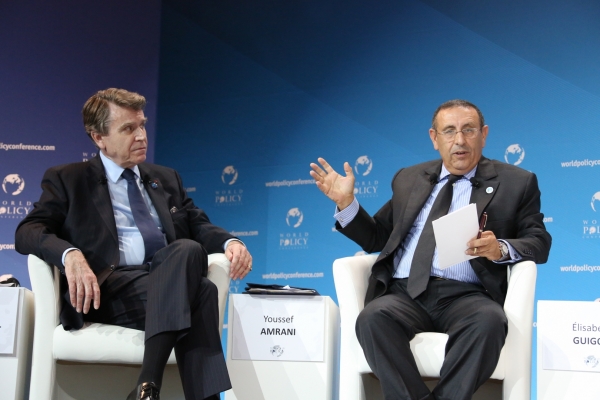
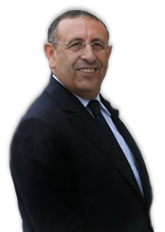

Introductory remarks on the Moroccan reform agenda by Youssef Amrani
Thank you, Claire, for a great introduction;
I would like to begin by thanking everyone for taking the time to be with us today, with a special word of appreciation for Dr Claire Spencer and her team at Chatham House, for hosting us and making this event possible.
I would like the thank Her Royal Highness Lalla Joumala for her valuable contribution for the succes of this meeting
It is always a pleasure to be in London and especially here, at Chatham House, which has always offered my country an open and positive platform of exchange with our British friends and partners.
Today, my colleagues and I have come with a set of specific objectives and very open frame of mind. We are here to talk, but more importantly to listen and discuss. We want to share with you some of our country’s latest developments, but also take back with us your feedback and impressions on what you think we are doing right, and should keep doing, as well as where you think we should do more.
This exercise is important to us at many levels:
– Firstly, we are to tell you about who we are and where we want to go. We are conscious that many of you are here tonight because you already know about Morocco, or are interested in finding out more. What we want to do is go beyond the surface and my colleagues present here this evening – who represent a wide diversity of sectors from our society – are all interested in engaging in an open and honest exchange that can hopefully all teach us something new, about ourselves and each other.
– Secondly, we are here because we seek to build a stronger, more strategic and diverse partnership with the UK. To succeed, this must not be a one-sided effort, nor a top-down initiative. It is only by listening to all the views that we can identify the best way to take this relationship forward and tap into the vast potential it holds for both Kingdoms.
– Thirdly, Morocco has never feared constructive criticism and we have no taboo in discussing any aspect of our country’s path to consolidate democracy. We are the first to say that this is a learning process that needs time, sustained commitment and support from our friends and partners.
In this spirit, we are here not only to speak about our achievements, but also to openly share with you the challenges we face. Some of them are shared challenges, like how to stimulate growth, maintain competitiveness, manage demographic pressures or respond to growing social inequalities appearing on a global scale. Others are more specific to Morocco – like how to keep moving consolidating our democracy.
My opening remarks have, I hope, allowed me to set the tone for a frank and open exchange.
Before I give the floor to our other speakers, who will each present you with their expert insight on a broad spectrum of fields, I would like to briefly share with you a few thoughts about some key defining ideas and principles that have shaped our democratic experience and make the Moroccan model different and unique.
MOROCCO’S DEMOCRATIC REFORM PROCESS
There are a number of key factors which make our democratic path unique and successful:
-A longstanding Democratic Commitment
-Our democratic reform process is not something new. It built slowly, but surely, ever since our country’s independence, when Morocco chose the ways of modernity, political pluralism and economic liberalism.
-This means we were never forced into anything and did not wait for the Arab spring to think about change as a positive thing. Ours is a story of peaceful and sustainable evolution, rather than violent revolutions.
-This longstanding process has only grown stronger with time, gaining, over the past decade, a new, more ambitious dynamic under the leadership of H.M. King Mohammed VI.
-The new Constitution called for by our Sovereign and adopted by popular referendum in July 2011 enshrined this continuous reform process and gave it a strong new impetus, confirming its irreversible nature.
-Today, this new Constitution is our roadmap towards the establishment of a 21st century democracy, engaging many new and major reforms that my colleagues will be discussing in detail.
An inclusive and proactive Approach:
Morocco’s reform process is built on a specific approach promoting inclusivity, participation and ownership.
This has resulted in a purely home-grown reform process, adhered to by all social actors, which is ensures its long-term sustainability.
Proactivity is also a key element in this approach. We have always seen change as an opportunity for improvement, rather than waste our time and efqforts resisting it.
A clear Vision for the Future:
-The driving force behind this approach is the clear vision of His Majesty the King for our Nation’s future, to keep evolving as a more democratic and open country.
-This vision is built on a specific Moroccan model which works because it is based on our own needs and reflects our unique identity.
It is also a global vision, seeking to include all aspects of human development by promoting, side by side, the two essential pillars that are economic and political development.
A strong Identity:
-Morocco is a nation with a strong identity and history. This is gives us the courage and confidence to engage in change and reform.
-Our highly strategic geographic location – at the crossroads between Africa, Europe, and the Arab world; between the Atlantic and the Mediterranean – makes us a diverse society, open to all faiths and ethnicities.
-Tolerance, openness and moderation are in our nation’s DNA. We have always been a platform for exchange and trade.
-Our identity is also defined by creativity and proactive ideas. Unlike most countries of the region, Morocco has no oil or gas. We have always had to think out of the box to stay relevant and competitive in today’s global economy.
How are we different?
-All these factors – the vision, the approach, the longstanding nature of our efforts – are the building blocks of the unique Moroccan democratic experience.
-Our alternative method – this third way of pacific and evolutionary reform – has allowed us to embrace proactive change as the guarantee of our long-term stability, while others in our region continue to continue to fear change and seek stability through status quo.
-We do not think we are better than other countries, but we know we are different and that so far, we have been doing something right.
-The Moroccan experience confirms that there is no such a thing as an Arab or Muslim exception.
-It demonstrates that Islam is perfectly compatible with democracy, human rights and freedom. It is proof that evolution is possible without bloodshed, without break and without uncertainty about the future.
-For these reasons, and despite all the difficulties it may encounter, Morocco keeps moving forward. No matter the challenges, what is important is that we keep moving in the right direction and that this constitutes an absolutely irreversible commitment.